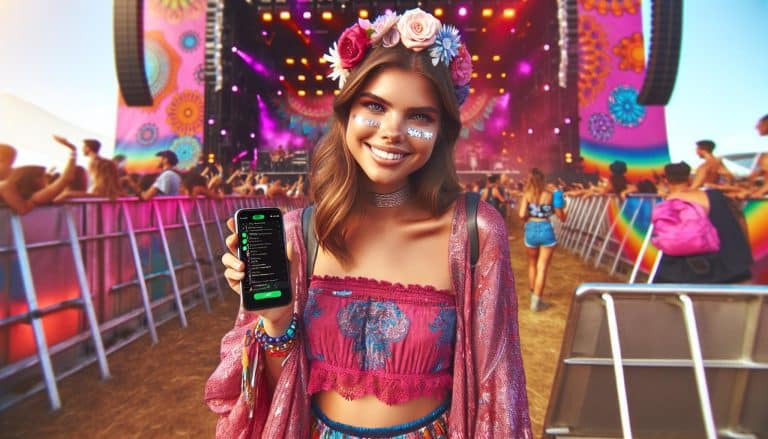Music event planners and organizers know that one of the most reliable ways to get the word out about your music event or festival is through a meticulous and strong social media campaign. The truth is that a lot of your contact with your target audience will be through established through a network of social media platforms. This is because most people will see music event and festival content through social media. It’s undeniable that the power of social media is strong–it’s a not-so-secret marketing tool that will ensure that you reach your target audiences. Creating a strong social media plan covers all avenues of what you need to do in order to reach your target audiences.
Promoting your music event on social media does a number of things. The main thing that it does is establish a level of communication and recognition with your target audience. Social media is a proven way to ensure that you reach your target audiences and stay in their news feed. A good and strong social media plan will allow you to interact with your target audience in a way that will persuade them to become prospective ticket buyers. The goal is to promote your music event and increase the number of music eventgoers attending the music event or festival. Additionally, a meticulous social media plan will also get your eventgoers talking about the music event or festival even after their attendance which speaks for brand longevity.
Here is what you have to do to ensure that your social media plan is getting the results that you want.
1. Identify your objectives and goals
The first thing that you want to do is make sure that you identify your objectives and goals for your event. When you identify and establish your goals first, planning becomes easier to do because you understand the parameters of what is possible for a specific goal that you have. Additionally, establishing your social media goals will help you better tailor and fine-tune your strategy. A few examples of what these objectives and goals could look like are:
- Increase audience engagement
- Attract and drive target audiences to your event ticketing site
- Increase ticket sales
- Get your music event or festival’s mission statement out if it’s to bring awareness to a cause
Then you can proceed to create a specific social media strategy for each goal which helps define how much time and energy you will spend on planning. This helps to allocate your time and schedule for all the tasks that you have to accomplish for the event in a timely manner. You are now more organized and you and your team can split into teams to manage and accomplish your social media goals and event goals as well.
2. Research your target audiences
Your target audience should be the center of a strong social media campaign because essentially every content that you and your team will produce is to get their attention. After establishing your social media goals, researching your target audiences is the next important thing that you have to do. When you understand your target audience, social media planning gets easier because you know what content you have to produce in order to attract a specific audience. An easy way to get started is by audience mapping. Create an Excel or Google Sheet that will help you organize and ideate on what type of people will want to attend your event, what would interest them specifically about the event, what social media platform these groups of people use most, and what are their overall interests and expectations.
Taking the time to understand your target audience will help you refine your social media campaign by allowing you to tailor specific content to your target audience. When your target audience sees compelling content, they are more likely to want to stay in the loop and follow what you do on social media. The likelihood of them going to your event ticketing site and purchasing a ticket to the event also increases when they see content that appeals to their specific interests. When you use Ticket Fairy, each ticketed event helps you understand who your audience is for a certain music genre, sporting event, or any event type. This happens through a detailed breakdown of the audience’s demographics, behavior, and interests. All this information can help you promote your event more effectively the next time around. You can also apply this data when you are creating audiences to run social media advertising campaigns.

3. Establish and refine your content strategy
After taking the time to research your target audience, you want to develop and refine your content and content strategy. You and your team want to actually ideate and develop engaging content that will increase your target audience’s interest in the music event or festival that you’re organizing. Get a bank of social media content ready (with extras) and think about how and when you’re going to get them out live to your target audiences.
Then, refine your content strategy. Think about content strategy as the bridge linking your social media goals to the specific actions that you have to take to accomplish them. For example, if you’re trying to crowdsource pictures of your attendees enjoying the event for an “after-the-event campaign,” put a short shoutout on your Twitter account with a specific hashtag. It’s simple. Think about what you want to do and develop the strategy to get that idea out in a way that enhances the experience for your target audience.
4. Create a schedule for consistency
A schedule will ensure that the content you develop will reach your target audience in a timely and consistent manner. Creating a content calendar is a smart way to not only get organized but also establish a timeframe for when specific content should get out. For example, about three months ahead of the music festival you want to get the lineup announced to your audience so you want to make sure you schedule content announcing your lineup on your social media pages in that timeframe.
A content calendar also helps with consistency. Posting consistently on social media is the key to connecting with and ensuring your target audience stays interested. No one is interested in a “dead” social media account. They follow and pay attention to an account that posts consistently and with intention. So when you create a content calendar, make sure that you’re scheduling consistent posts with compelling content.
5. Understand what content is suitable for each social media platform
And lastly, understand your social media platforms. What content is meant for Twitter probably will not work for Instagram. You also want to do research on what social media platforms your target audience uses the most. This will help you refine your social media strategy and target specific social media platforms. For example, if your target audience uses mainly Instagram, create a lot of content with impressive visuals. But you also want to pay attention to other social media platforms as well which will help get the word out about your music event or festival. A simple way to do this is to reshare social media content across social media platforms.
>>>
A strong social media campaign will ensure that your music event or festival will stay current and popular in your target audience’s circles and news feeds. Social media is a tool that you can use to help build momentum and excitement for event. So make sure that you pay special attention to your social media strategy and plan for a strong and meticulous campaign that will attract attention and interest.



